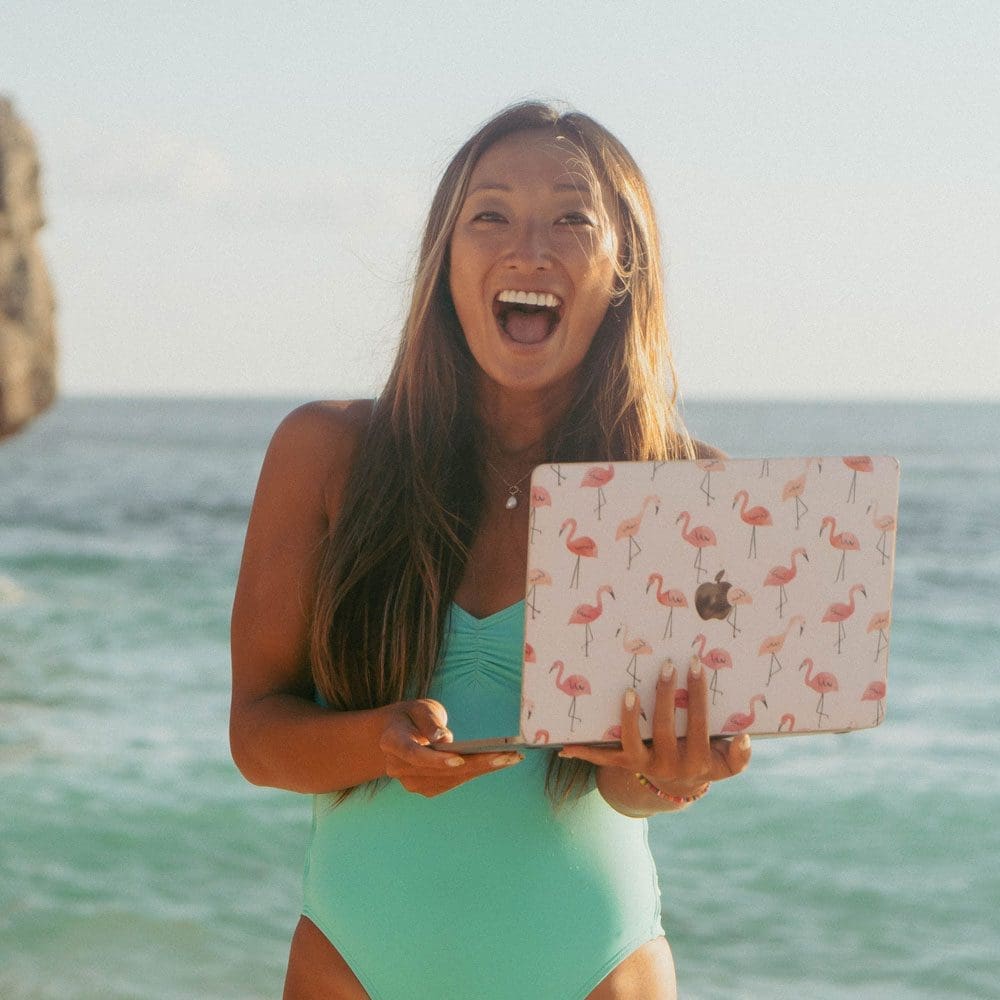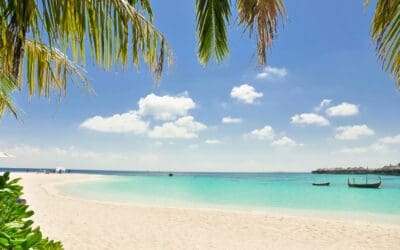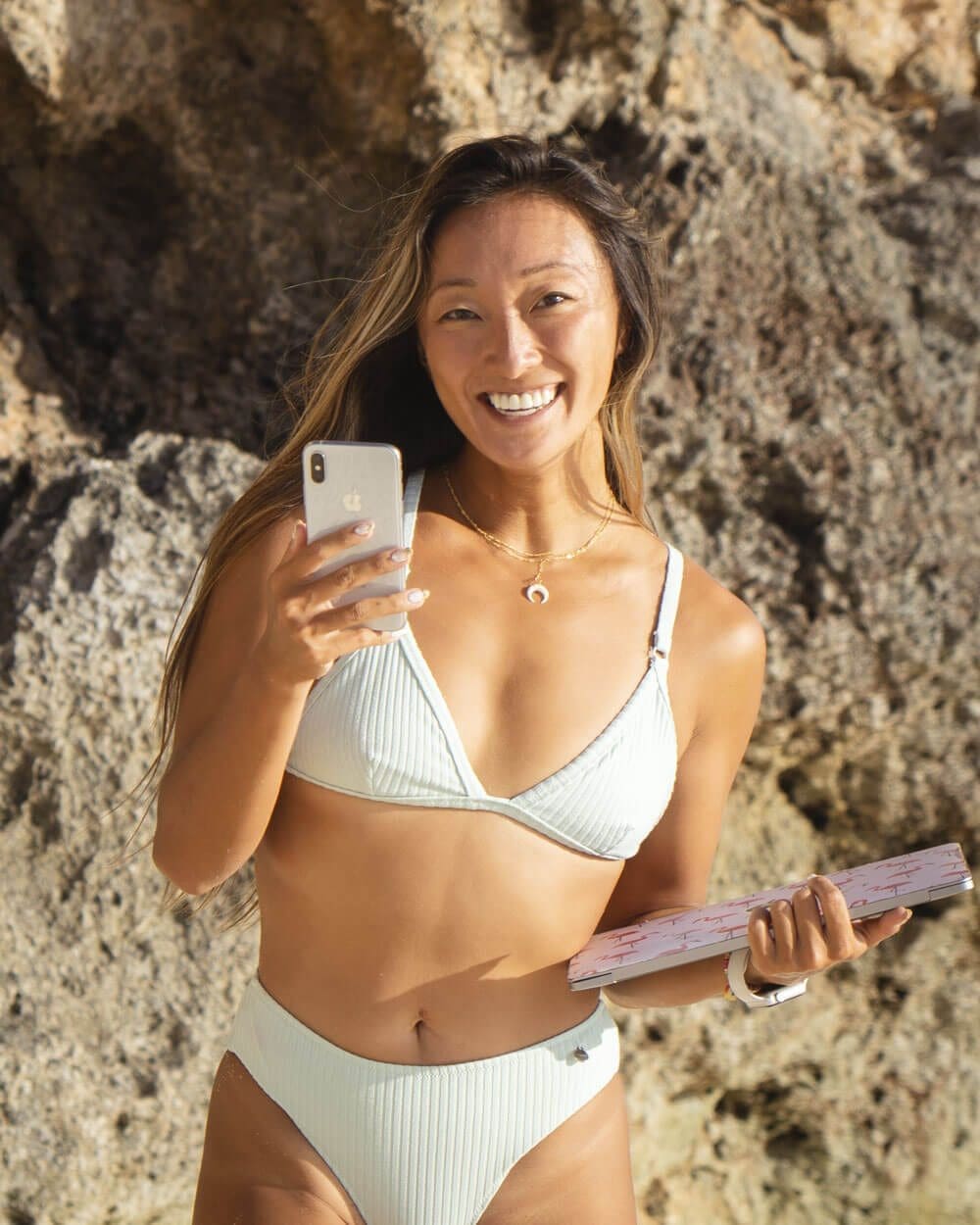Tune in or read the blog version below!
Quick Links
✧ Join the Digital Nomad Society for Just $7/Month
✧ Follow The Wanderlover Podcast on Instagram
Danielle: Hello my loves. Welcome back to the podcast. Today we have a special guest, Michael Kim, who is a personal finance coach and digital nomad. I know some of you have dreams of traveling full-time, but have no idea how to make the money side of things work, so this episode will be super helpful for you. Welcome to the show Michael!
Michael: Thank you so much for having me Danielle.
Introduction
Danielle: Thank you for being here. To set the scene, you just got back from Mexico, right?
Michael: Yes, I was in Mexico for three months. This was my first digital nomad trip, so I was super, super excited to do it and it was like everything I ever dreamed of it was I made the friends that I wanted to make. I like enjoyed living by the beach and it was the best experience ever.
Danielle: And where are you originally from?
Michael: So I’m originally from Toronto, Canada and I was born and raised here.
Danielle: What led you to go from Toronto to becoming a digital Nomad and then like living in Mexico for months?
Michael: So I pretty much caught the travel bug ever since 2015. When I went to Poland for the first time, I went on my first backpacking trip. So as a kid I never really traveled with my family because we couldn’t really afford to travel. We were a Chinese, Korean immigrant family, so we were just like, oh, if you’re going to travel then you’re going to travel within Canada or to the us But like that was it. I’ve never been to Asia before. Mm, never been to Europe. So I was like, I didn’t really know what traveling was to be honest. And then I went to Poland just not because I wanted to go to Poland, it’s just because I had no recollection of like what Europe is. It’s like what’s the difference between Italy and Poland?
So I decided to go to Poland, met so many friends, learned so much about myself and that’s when I was like, oh my gosh, I love traveling and in the future I want to be able to have the freedom to work and travel anywhere in the world. So that kind of became my journey as to how I wanted to and try to create a life where I get to work and travel anywhere in the world.
How to Make, Save, and Invest Money
Dani: Yeah, I love that you set out on that in 2015. And I guess ever since then, I know you know you worked in corporate for a little, but you always had this north star that you wanted to be location independent and you wanted to be able to work from anywhere. When you were in corporate, was it always you knew that you wanted to save and then quit? Or was it you started your business before? What did that look like for you?
Michael: So in 2019, I graduated university from the Ivy Business School at Western University where I studied accounting and finance. And I didn’t necessarily do it because I loved numbers and I love like doing ex Excel spreadsheets. I did it more so because I wanted to learn how to manage my own finances, to support my family and to be able to take care of myself. And so when I graduated university in 2019, I was like okay, my goal is to be able to work and travel anywhere in the world. And the way that I was able to do that was I think I break it down into three main things that I did. So I learned how to make money, I learned how to save it and I learned how to invest it.
And once I was able to learn these three main skills, then I was like, okay, now I get to create any sort of life that I want for myself.
Dani: Hmm, that’s amazing. So did you learn that in school? Like the making, the saving and the investing?
Michael: Partially. So when it came to making money, definitely not. So in school, as you probably know ’cause you’re from a corporate finance world, they just teach you go to a nine to five jobs, like work clocking your hours and how you make money, climb the corporate ladder. But as digital nomads, we have to learn how to make money out of nothing just from the internet and using our own skills and knowledge and how to market and sell ourselves. So it’s very entrepreneurial to be a digital Nomad. So when I graduated university I really had to learn these skills starting from scratch. I was working a corporate finance job at the time at Deloitte and on the side while working my corporate job, I was trying to learn the skills in order to be able to make money online.
So I started my personal finance coaching business in 2020 and that’s how I began coaching people about personal finances, helping them learn how to have control over their money and their lives. And I slowly developed the skills on how to sell myself, how to help people better. And that eventually grew to the business that I currently have today that allows me to make money from anywhere where I have a decent internet connection.
Dani: That’s incredible. I love hearing that story and I resonate obviously with the corporate side and then also learning to make money and then with the inner desire to be able to be location independent.
Common Financial Challenges
Dani: From your experience with your clients, what do you see are common challenges that digital nomads face in terms of making and saving and budgeting? Because I know people have various mental outlooks on making and saving, right? Do you see common challenges of people wanting to travel full-time but then not being able to manage the personal finance side of things?
Michael: Yeah, I would say when it comes down to it, I guess the major problem that most digital nomads face is just when it comes to making money. They’re typically stuck in a nine to five job similar to us where we, where they are given a salary and they’re given a salary because they just work a certain amount of hours and voila money comes in. But then you have to completely change your mindset when it comes to making money as you’re on your own as a business owner. And so I think one of the biggest challenges that I see my clients face is overcoming that mindset of how they actually make money. The way that I tend to help them essentially make money online using their own skills is to re the way that they think about.
So when it comes to making money, at the end of the day, it is just a form of value. Back in the day when money didn’t exist, we would just barter like trade a sheep for a bag of rice and then you would be able to make that transaction because it’s of equal value. And then money just made it easier to be able to do these transactions. And so If, you want to be able to make money from anywhere, all you really need to do is provide value to someone else. And when you provide value to someone else, then that’s how you get paid. And so one of my clients, she was like, oh, but I don’t have any skills to make money online. And I was like, okay, well do you speak English? And she was like, yes. I’m like, well there are so many people around the world that would love to learn how to speak English fluently. And then that’s when she started her online English teaching business and she was able to make money online.
Danielle: Yeah. And so many times we are limited by what we think we’re capable of, right? Like when we’re surrounded by English speakers, we think, oh, everyone knows. But then when you kind of zoom out and you see the world for what it is, there are so many skills that you have that they don’t necessarily have. And If, you can package that in a way where people can give you the money or give you a sheep for whatever value you are offering. That is the nature of an online business. (See my episode about how to figure out what business to start here).
Michael: I think that perspective change is so important as well because if you’re constantly surrounding yourself with people who are working the regular nine to five job and aren’t traveling and you know have a two week vacation every single year, then that’s the life that you’re probably going to end up with. Mm. But then when I went traveling on my first digital Nomad trip, I was like, is this like a weird thing to do? Like is this even possible? And then I was surrounded by other entrepreneurs, other remote workers who are living this life that I want to live and it I was like, oh my gosh, this is 100% possible for me because all of these people are doing it.
How to Transition Financially
Danielle: So how would you say like let’s say our listeners, they are currently in a corporate job and they want to live a digital Nomad lifestyle. Would you recommend starting their business first or increasing their savings to get them on track to live out a digital Nomad lifestyle in the next few years?
Michael: I would say you would need to start with learning the basic money skills. And as I mentioned before, the basic money skills is how to make money, how to save it, and how to invest it.
Make Money
Michael: So when it comes to making money, I would recommend learning how to make money as soon as you can, learning how to market yourself, market your services, or even I, when I was traveling I realized that actually not a lot of digital nomads have their own businesses and they actually just work a remote job for a nine to five company. So that is also another form of value that you’re providing to a company just remotely. So the first thing is that you need to know how to make money.
Save Money
Michael: Secondly, you also need to be able to save money at the same time. So while you’re at a corporate job, this is the perfect opportunity to learn how to manage your Finances effectively and be able to save money. Because as you probably know Danielle, as an online business, it is 10 times harder to manage your personal Finances than if you’re just working a corporate job and trying to manage your own personal finances. Because when you have a business, you have to manage your own and your business’s finances. So if you’re able to learn how to figure out how much money that you make, how much money are you spending, and how much money are you putting away for your future goals, like becoming an digital Nomad, then you’re able to have a buffer of savings that you can use in order to make your dreams last longer.
Invest Money
Michael: Then investing is such an important skill and investing is actually a skill that I use in order to generate a lot of passive income for myself so that while I’m traveling I have a form of income that isn’t from my business and that doesn’t require me to actively put in work every single day in order to make money. So with, when you learn how to invest your money, you’re able to generate a certain amount of passive income and grow your Wealth without even needing to put in any work. And so while you are making money from your business, while you’re being able to save money either through your business and your corporate job, you have to be investing your money at the same time so you’re growing your Wealth in your sleep. And this really helps when you become a digital Nomad, when you don’t always have a steady form of income. Investing is really what keeps the snowball rolling
Danielle:
Do you think investing is different in every country or would you say countries around the world have the same vehicles and investment tools available?
Michael: I would say the main investing concepts are universal. It’s the same. Okay. Yeah. For example, like investing in the stock market over the long term, the stock market returns about an eight to seven or seven to 8% every single year. And so If, you invest in the entire stock market just consistently on a regular basis. In the long term, let’s say over 10 years, you can probably assume that rate of return. And so there’s some general investing concepts that are universal to all in each country there’s going to be like slight differences. For example, in the US you have the 401k. In Canada we have the TFSA, which is just different tax vehicles.
But once you understand the basic investing concepts and you know why you should be investing and how to actually invest your money, then all the other little details become a lot more easier and less complicated.
Learn Money Skills
Danielle: Mm, I love that. And do you teach that to your clients? Do you have courses?
Michael: So in my personal finance coaching program, I call it The Money Skills Bootcamp. And the reason why I created this program is because I realized that when you learn how to effectively make, save and invest your money, you essentially get to choose the life that you want to live. Not all of my clients want to live a life where they can travel around the world and you know, live this, this digital Nomad lifestyle. Some of them really just wanna settle down, buy a house, have a family, but in order to do that you still need to know how to make, save and invest your money. And that’s why I totally believe in being able to learn how to develop these skills so that you can learn how to effectively manage your money.
Danielle: Definitely, yeah. That is so important.
Balance Spending & Saving
Danielle: Do you ever while you’re traveling feel a push and pull? I know we both come from Asian backgrounds where you’re always taught to maybe save for a rainy day while you are traveling and you want to experience new things and you, you do wanna spend your money but you’re not, you could also invest it, right? So do you ever struggle with the practicality of spending money versus enjoyment in life?
Michael: Oh my gosh, that’s so, so much. I’ll tell you the story. When I went to Poland for the first time in 2015, I was still in university, so I wasn’t really making much money. And I really came from this scarcity mindset of you can’t spend money, you can’t spend money and you need to save money, which I’m sure a lot of people from Asian immigrant or just immigrant families can resonate with. And so it came to a point where it was actually unhealthy for me to, to the way that I was living because I was so scared to spend money that I didn’t wanna buy food.
Danielle: Wow.
Michael: I was like, oh, I need to like save as much money. I can’t afford to go to grocery stores, I can’t afford to eat out, so instead I’m going to like eat as little as possible and sleep as much as possible.
Danielle: Oh my god.
Michael: Yeah. So while I was in Poland, literally the first two weeks I was like sleeping all day. I was like, I had no energy. And then I realized like I’m like, I’m literally gonna die in Poland. I’m like, this is, this is horrible. And then that’s when I made the shift. I’m like, okay, maybe it’s actually okay to spend money. Maybe it’s actually beneficial for me to be able to invest in my health and invest in taking care of my body and my and my life. And so that’s when I started to go to the grocery stores and I started cooking all of my meals. And after I was spending money on my food so that I had more energy, I was, it was so much more enjoyable. Yeah. I was able to go backpacking all across Eastern Europe.
I was able to make all of these friends and learn so much about myself and this is the story that I like to share to show how important it is to not just save money but also learn how to spend it. And when you are spending money, not to just see it as oh, money out the drain, but see it as an investment. Yeah. When you spend money on your health, that is an investment. So you don’t have to, you know, take care of all of these complicated health issues in the future. When you spend money to learn a new skill, this skill is going to bring so much money and so much value into your life. And so it’s an investment and it’s a skill that you’re gonna have for the rest of your life.
Danielle: Yeah, definitely. I think coming from a scarcity money mindset impacted me differently where because I felt so scarce with money growing up, as soon as I started making it, I would just spend it on everything I kind of like wasn’t allowed to have when I was younger and I actually had to take a step back being like, okay, I need to manage my money better. I can’t just spend it as soon as I make it. I went like the opposite way.
Michael: Yeah. It’s so funny how our money stories and our money experiences completely changed, changes the way that we deal with money. And I have a sister who was the opposite, like similar to you, I was like, oh my gosh, I need to save everything I need to, you know, manage it properly. And it was like the opposite end where it was almost unhealthy. And then my sister was the complete opposite. She experienced the exact same things but she was like, okay, I’m just gonna spend money and not think about money.
Danielle: Yeah. It definitely affects us even as adults.
Tips to Prepare Financially For Travel
Danielle: Off air, you did mention next you are doing a TED Talk in Canada and then you are going to Asia in February, right?
Michael: Yes. I’m so, so excited for both of those things.
Danielle: How have you prepared your money and your financial situation moving to the other side of the world? Any tips that you would like to share?
Michael: Sure. I am a crazy trip planner. Like for anyone who pulls up the Excel spreadsheets in order to plan the itinerary that is that person is, me and my friends always make fun of me because I plan everything from like when to sleep and when to eat, especially when I go on vacation travel. And so I would say the first thing is just to get a very clear grasp of how much money you’re going to be spending while you’re in whatever country that you’re in. And when you’re in that country or when you do your expenses, then you can kind of figure out what type of travel you’re going to be like, is this a budget travel or is this like more of a luxury travel?
Because once again, you wanna be able to find a balance between spending and saving money. And so for me, when I’m going to Southeast Asia, there’s going to be some times where I’m going to be spending less and I’ll be more of a budget traveler, but then my partner is actually coming to visit me in Thailand and then we’re going to have more of a luxury experience. So I am putting everything in my budget so that when I’m traveling there I, I’m very consciously aware of how much money I’m spending and saving so that I can make the best out of this whole entire experience.
Danielle: Wow, I love that. And I love that you have a plan even before you go there. Do you budget all of your trips before going on them?
Michael: Yeah, definitely. I definitely budget everything beforehand and it also, I guess another tip when it comes to budget traveling is that staying is always a lot cheaper than staying just like for a short while. And so for me, I’ll be staying in like a lot of places for about a month at a time and this really allows me to get to know the place a lot more, get to experience the culture, meet new people in that specific location during that month rather than just like hip, like jumping around different countries in different cities, like for only like a week or two.
Danielle: Yeah, definitely. I think long-term travel is definitely more sustainable as well if you have an online business because it allows you to not have to be on the go all the time. You can have routines, you can really integrate with the community.
Michael: Yeah. I realized when I was in Mexico that it would take me a few days to like reconfigure myself. I would, I lived in Puerto Escondido for about a month and a half and it took me a good week to like get into my schedule, get into the new routine because everything is so, so new and it’s really exciting and really great. But then when it comes to working on your business and trying to create time to work and for being able to do productive work, then it takes a little bit of time to reconfigure your, your time and your body.
Danielle: Yeah, definitely. And especially if you’re going to Asia where the time difference and like you lose basically two days just getting there. But that is so exciting. And Michael, I really appreciate your wisdom and all of your expertise on personal finance.
Connect With Michael
Danielle: Do you have socials or Links that the audience can find you if they want to get in touch?
Michael:
Yes, you can find me on all socials. Primarily I’m on Instagram, LinkedIn and YouTube.
Danielle: Michael has obviously a ton of knowledge on personal finances and he does amazing as a full-time traveler and an online business owner. So I really encourage you guys to get in touch if you have any questions. And Michael, thank you so, so much for being on the show.
Michael: Thank you so much Danielle. So happy to chat with you today.
Danielle: See you guys next week!
If you’ve enjoyed this episode, it would mean so much if you could leave a review on Apple Podcasts. This helps us spread The Wanderlover mission to those who need a dose of inspiration today.
Share On Pinterest
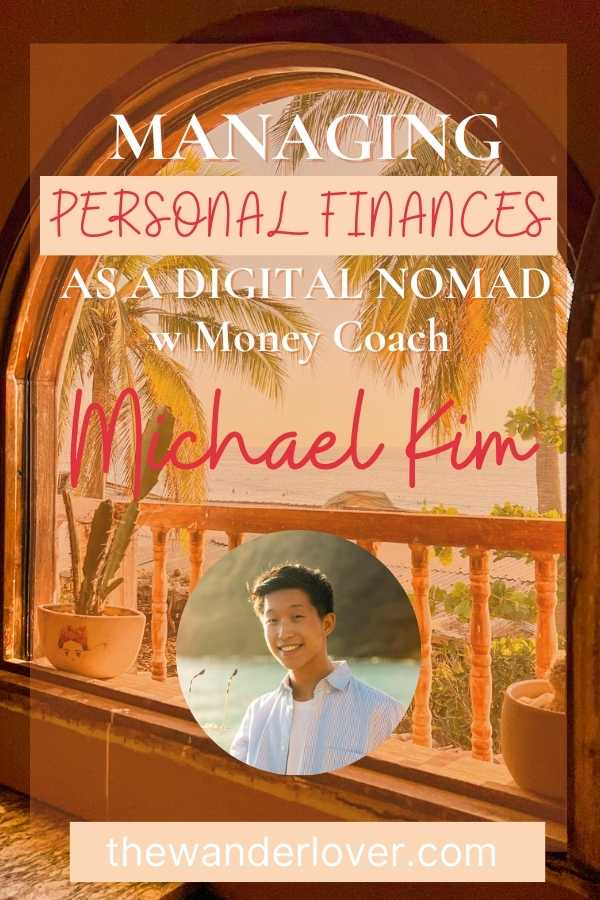
Read Next
How I Travel for Free Using Credit Card Points
What Time Freedom, Location Freedom, and Financial Freedom Mean To Me
Top 5 Digital Nomad Destinations (for Surfers)!
Attracting Your Perfect Life Partner As a Nomad
Holafly eSIM Review: Best eSIM for International Travel
SafetyWing Review: Best Travel Insurance for Digital Nomads
My Digital Nomad Life in Batukaras, Indonesia
Best Bali Coworking Spaces for Digital Nomads
Rapture Surf Camp Review | Best Bali Indonesia Surf Camp
Our Next Digital Nomad Adventure: Northern Spain!
Behind the Scenes of a Slowmad: Slow Travel and Business Growth
